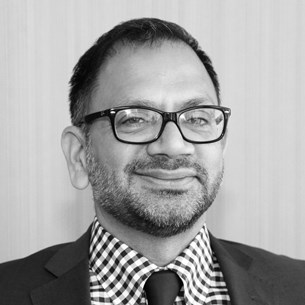Meeting
2021 ASCO Quality Care Symposium

Cardinal Health, Dublin, OH
Ajeet Gajra, Yolaine Jeune-Smith, Stephanie Fortier, Bruce A. Feinberg
Background: The COVID-19 pandemic has adversely impacted healthcare workers globally, leading to high rates of burnout, especially among frontline workers. We conducted a study to assess the pandemic’s impact on community-based medical oncologists and hematologists (mO/H) in the U.S. before the widespread distribution of vaccines. Methods: Between October and December 2020, mO/H participated in a compensated, online survey addressing the impact of COVID-19 on oncologists’ professional and personal lives and other issues in oncology; demographic, clinical, and practice-based questions were also asked. Results are presented using descriptive statistics. Results: A total of 259 geographically diverse mO/H, with a median of 18 (1-42) years in practice, completed the survey. At the time of the study, local trends in COVID-19 cases were reported as increasing, stable, or decreasing by 29%, 51%, and 20%, respectively. The summative view of the pandemic was “proud of my work as a physician in the frontlines” (37%), “a challenge to get through” (35%), and “no significant impact” (23%). Over half reported a moderate to severe impact on their professional (60%) and personal lives (65). The top 3 factors adversely impacting professional life were: concern of transmitting COVID-19 to patients or staff (52%), difficulty providing patient care (45%), and loss of income (41%). The top 4 factors adversely impacting personal life were: concerns of safety for self and family (84%), a sense of anxiety (50%), loss of family income (24%), and a sense of depression/doom (22%). Fifty percent agreed or strongly agreed that they had increased burnout at work since the beginning of the pandemic. However, workload was assessed as stable (51%) or reduced (33%) during the pandemic. The top 3 factors contributing to burnout were: loss of face-to-face patient interaction (46%), financial loss by practice (42%), and reduced patient volume (35%). The factors thought to impact income were: use of virtual patients visits (38%), pay cuts from the employer (33%), and cancellation of elective procedures (31%). Overall, 41% reported receiving funds from government-based programs (e.g., CARES act) during the pandemic. While about half (52%) did not believe that the pandemic would impact their retirement, some felt that the pandemic would likely hasten (17%) or delay (17%) their plans to retire. Conclusions: This study confirms greater feelings of burnout among U.S. community-based mO/H in the wake of the pandemic and offers insight into drivers of professional and personal dissatisfaction. While mO/H have concerns about loss of income, notably, loss of in-person patient interaction is also a key factor impacting their professional satisfaction. Given the high baseline rate of burnout among mO/H, it is critical to prevent, mitigate and control additional risks imposed by pandemic-related factors.
Disclaimer
This material on this page is ©2024 American Society of Clinical Oncology, all rights reserved. Licensing available upon request. For more information, please contact licensing@asco.org
2021 ASCO Quality Care Symposium
Poster Session
Poster Session A: Cost, Value, and Policy; Health Equity and Disparities; Patient Experience
Cost, Value, and Policy,Technology and Innovation in Quality of Care,Health Care Access, Equity, and Disparities,Patient Experience,Quality, Safety, and Implementation Science
Organizational and Operational Issues
J Clin Oncol 39, 2021 (suppl 28; abstr 45)
10.1200/JCO.2020.39.28_suppl.45
45
F7
Abstract Disclosures
2021 ASCO Annual Meeting
First Author: Abeid Mohamed Athman Omar
2021 ASCO Annual Meeting
First Author: Richa Dawar
2023 ASCO Quality Care Symposium
First Author: Casey Kim
2023 ASCO Annual Meeting
First Author: Alison Tray